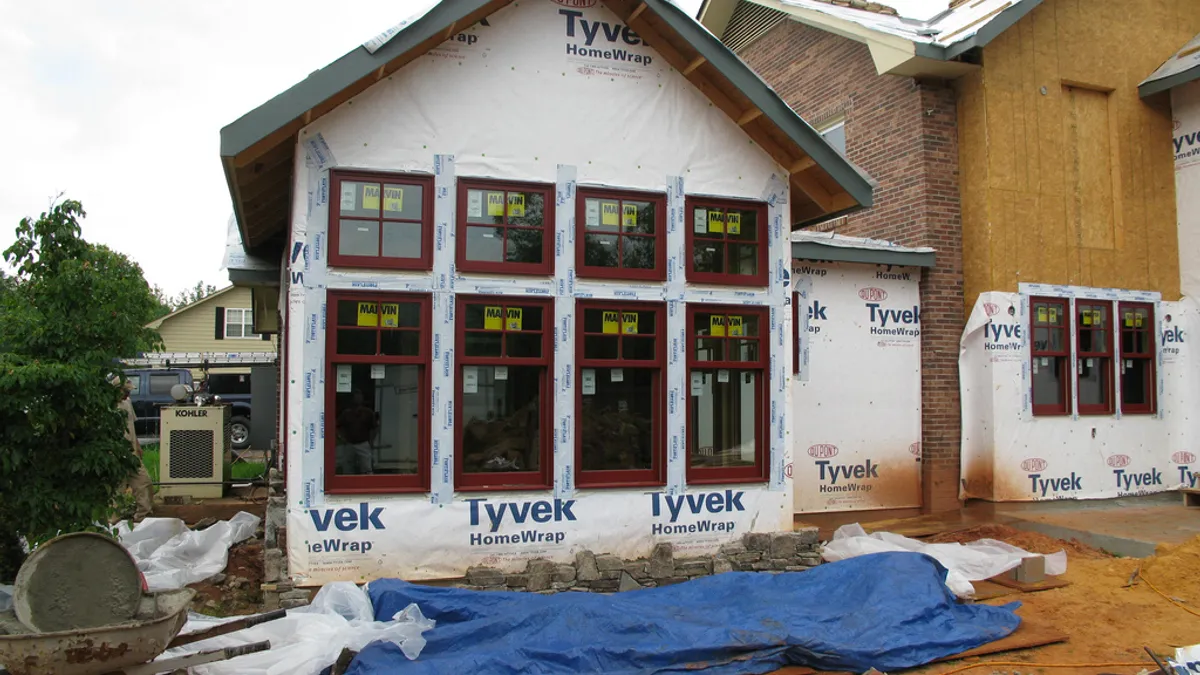Dive Brief:
- The National Association of Home Builders announced a four-point drop in its first-quarter 2016 Remodeling Market Index (RMI) reading to 54, still reflective of a net positive number of remodelers reporting higher activity than in the previous quarter.
- The RMI reading for current market conditions was 55, down one point quarter-over-quarter, and the RMI's future market conditions reading was 53, down six points from last quarter.
- In his comments on the RMI report, NAHB Chief Economist Robert Dietz said that the association still expects to see acceptable remodeling industry growth in 2016 despite the small drop in the future market conditions reading.
Dive Insight:
Among the factors that make up current market conditions on the RMI, small remodeling projects and home maintenance and repair both fell slightly, but major additions and alterations increased. However, all the pieces of future market conditions — calls for bids, committed work, proposal appointments and job backlog — all dropped from their previous-quarter readings.
Tim Shigley, the NAHB's 2016 remodelers chair, said that remodelers reported full workloads in the first quarter of 2016, but there were less calls and appointments, a circumstance he chalked up to financial market volatility.
The first-quarter 2016 Renovation Barometer report issued by online remodeling resource Houzz determined that confidence in the home remodeling industry rose on a quarter-to-quarter basis but experienced a slight downturn from the readings recorded in the first quarter of 2015. Houzz also said that remodelers had reported a tight labor market, especially for carpenters and framers, currently the trades most in demand, followed by tile specialists, plumbers and drywall professionals.
Houzz reports of a labor shortage are in line with what most construction industry associations have been saying for some time now. However, a recent Goldman Sachs report said that, according to economic data, the construction industry is not in the throes of a worker shortfall, therefore has not caused the slowdown in housing the industry has seen.












